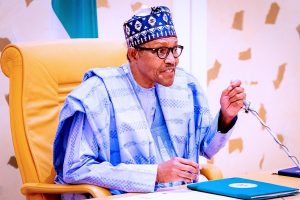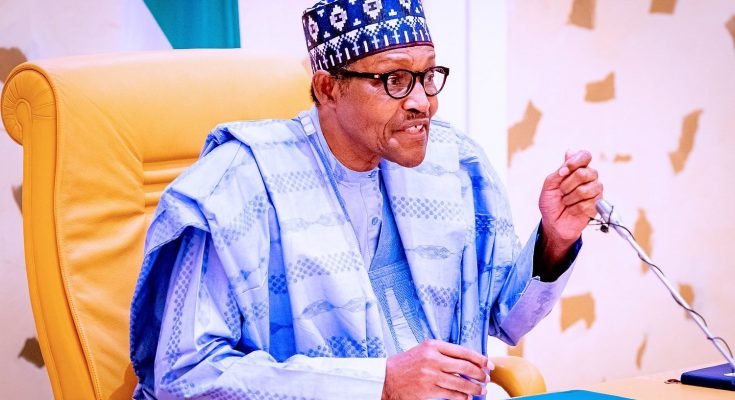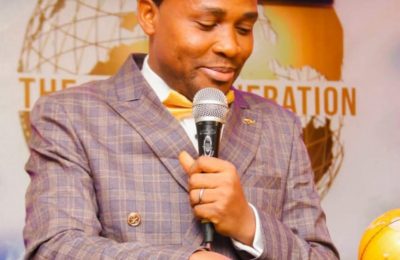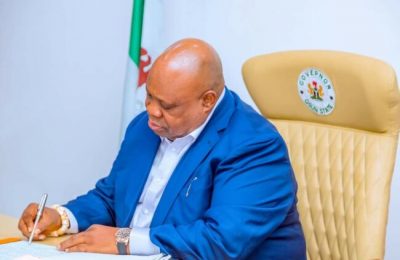


The Deputy Chairman of the Committee on National Security and Intelligence in the House of Representatives, Adejoro Adeogun, explains the issues with Nigeria’s security architecture in this interview with LEKE BAIYEWU
Many Nigerians are blaming the intelligence community for failing to detect crimes until they are executed, especially with the recent attack on Kuje Prison by terrorists. Who is responsible for this?
If Nigerians blame the intelligence community for failing to detect crimes, they are justified because of the expectation that most of the acts of criminality being perpetrated across the country would be prevented with proper intelligence.
However, there were situations, like the Kuje Prison attack that you mentioned, where early warning intelligence was allegedly received but not acted upon. I read in one of the dailies – a statement attributed to a minister who said there were Department of State Services’ reports of imminent prison break but that the reports did not specify that it would be Kuje.
I considered that excuse untenable, considering that the recipient of the reports could have asked further questions or put two and two together to identify correctional centres with high-profile inmates.
That the correctional service failed to act on available intelligence was indicative of the laxity with which our agencies treat intelligence. So, much as Nigerians are justified in blaming the intelligence community, sometimes the security failures are the outcome of negligence by the recipients of shared intelligence.
Where the intelligence agencies have intelligence about an imminent attack and notify other agencies, but they fail to act on it. What happens?
Isn’t the answer obvious? Insecurity is what happens. The question should be ‘why would recipients of intelligence fail to act on it?’ It is due to negligence, poor appreciation of threats, failure to give feedback where intelligence is incomplete, and a lack of synergy between intelligence producers and consumers.
The military and paramilitary agencies often clash in their operations due to overlapping mandates. What are the specific roles of the Defence Intelligence Agency, the National Intelligence Agency, and the Department of State Service in the intelligence community?
These agencies came into being by virtue of the National Security Agencies Act, otherwise known as Decree 19, of June 1986. The Act saddles the DIA with the procurement of intelligence that is military in nature; the NIA with external intelligence just like the American Central Intelligence Agency; and the SSS (State Security Service or DSS) with intelligence that affects the internal security of Nigeria. The roles are well defined, albeit with some overlaps.
If the National Intelligence Agency, DIA, and DSS have overlapping mandates, why can’t Nigeria have a central intelligence agency like the United States of America’s CIA for better coordination of intelligence?
The NIA, by design and operation, is like the CIA but it has to confine itself to functions prescribed by Nigerian law, so it should not be dragged into issues of internal security other than the provision of intelligence from the Diaspora to support internal security.
Talking about the CIA, I think a lot of people wrongly ascribe powers to the CIA that they do not have.
For instance, the CIA is not permitted to operate within the territory of the United States. So, it must collaborate with the domestic intelligence agencies on anything within the territory of the US. What it does have is operational capabilities driven by technology. I am sure our own agency can attain similar capabilities if we devote to them the kind of resources available to the CIA.
Must the National Security Adviser be a retired military officer?
I think the appointment of the NSA is subject to the discretion of the President. The most important requirements are competence and experience in intelligence management. It is on record that Ismaila Gwarzo, a retired police officer, was NSA during the military regime of Gen. Sani Abacha.
So, being a retired military officer does not confer any extra capability over other qualified and experienced people.
Could it be better if somebody from the intelligence community was in charge of the security architecture?
I don’t think we should preoccupy ourselves with where the person in charge comes from but rather with their experience, competence, and ability to inspire members of the intelligence community to raise the standard of intelligence procurement.
Perhaps I should ask what you mean by “security architecture?” Is it a monolithic thing under one roof? What is described as the national security architecture is a complex body of policies, systems, and dependent agencies coordinated to serve the purpose of national security. Is our security architecture properly coordinated? Is there any correlation between national security policy and response?
I am happy that you guys are asking this kind of question now. We have been groping in the dark for a long time because no one dared to challenge the status quo.
Perhaps the managers of our nation will look at the present situation and see the need to undertake a systemic audit of our security architecture and the way it is managed.
For me, managing our security architecture requires more than the background of the person who occupies the Office of the NSA. We need to look at the encumbrances that make the occupant of the office ineffective too.
What are the encumbrances that you have seen to be making an NSA ineffective in the system?
The NSA Act provides for an NSA who shall be a Principal Staff Officer to the President. It also makes the position advisory. Anyone conversant with the government knows that advisers have limited “operational power.” So, it is like creating an office and making it impotent.
In a nation still suffering from hangovers from the military regime, how will such an office coordinate security activities involving the military, paramilitary, and police, as well as harmonize law enforcement and security policies without hindrances when its enabling law gives it power to coordinate only the intelligence community?
The weak legal framework is the reason the effectiveness of the office is dependent on whatever authority is vested in it by the President.
Many resolutions by the Senate and the House on security issues seem to have been ignored by the executive arm of the government. Does it mean the parliament lacks the basic understanding of what is going on or that the crisis is only being politicized?
The National Assembly understands what is going on. Members are Nigerians and have access to information from all strata of society, perhaps more than the executive. I think what the legislature faces when its resolutions are ignored are demonstrations of arrogance and executive rascality, nothing more! It is sad and shameful that it has continued to happen, even when the parliamentary resolutions are meant to offer support to the executive.
If indeed the executive is displaying rascality by shunning the National Assembly, is that not enough for the parliament to force the executive into action through vetoes and impeachment threats?
When you have a fragmented nation, decisions and actions may sometimes be driven by influences outside the chambers of parliament. I think it is the imperfections within Nigerian society that restrain the legislature from biting when it should.
The minority caucus in the National Assembly, perhaps out of frustration, has issued a six-week ultimatum to the President, Major General Muhammadu Buhari (retd.), to address the security and economic issues or be impeached. Can this be resolved within that time frame?
The minority caucus is doing what minorities in parliaments do – providing a robust opposition.
Bear in mind that we are a few months away from a general election and the opposition needs to occupy the media space to sell their candidates.
So, it is all politics. Every member of the National Assembly is aware of the constitutional requirement for impeachment and why it would be difficult to achieve months before a general election, especially in a fragmented nation like Nigeria.
How do you think your party, the All Progressives Congress, will persuade Nigerians to keep it in power in 2023, despite the fact that the incumbent President, Muhammadu Buhari, is a retired Major General and insecurity has worsened under him?
We will face the two major issues confronting Nigeria today – security and the economy. We will tell Nigerians the value proposition of our presidential candidate (Asiwaju Bola Tinubu) and why his previous governance experience places him in a better position to deal with the core challenges we face. Continue Reading








